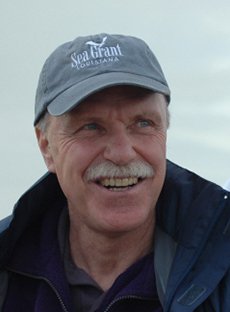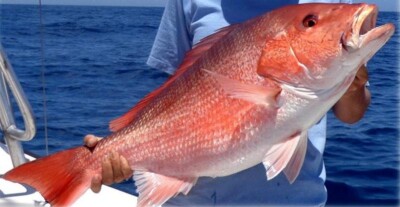The 2017 SeaWeb Seafood Summit is taking place in Seattle from June 5-7, 2017. Ray Hilborn, a global fisheries expert and University of Washington professor of aquatic and fisheries science will once again be participating as an attendee and presenter. In an interview with SeafoodSource, Hilborn praised the show for promoting a healthy dialogue between commercial and scientific interests. He also called for more commercial fishermen — and especially those from the Pacific Northwest — to make an effort to attend.
Ray HilbornQ: Why do you think the SeaWeb Seafood Summit is an important event for seafood industry professionals — and especially commercial fishermen — to attend?
Hilborn: The big message would be that the commercial fishing industry, policymakers, academics and NGOs need to start finding common ground, and of all the places I’ve ever been, the SeaWeb Seafood Summit is the best place for that to happen. It’s probably the biggest event I can think of where you have the leaders from all elements of the seafood world all in the same place.
For commercial fishermen, it’s very clear that a lot of the fishing agenda is being driven by NGOs these days…things like certification and traceability, which is a really big issue now. So it’s a great chance for people in the commercial industry to see what NGOs are thinking and what the major issues are now and what the driving agenda will be in the future. It’s also a chance for them to have an influence on the NGOs; to give them a chance to share their perspective and let them know about what’s going on in the real world.
Q: What was your opinion of last year’s event in Malta? What were your main takeaways from that event?
Hilborn: The big takeaway for me from last year’s event was that it was the first conference I had been to that had a generally upbeat attitude about the future of fisheries; it wasn’t all gloom and doom. There were a lot of presentations showing that, in fact, things are going well in some places, that sustainable fisheries are being achieved and maintained.
Q: What are the top questions that need to be addressed at this year’s summit?
Hilborn: I would say that the top issue facing American fisheries, which is also coming up for European fisheries, is how to deal with mixed-stock fisheries. We’re seeing on the West Coast and in New England that they’re only catching 30 to 40 percent of what are very conservative TACs. Is that where we want to be, or can we find a way to get fuller utilization of our potential harvest?
Q: If you could wave a magic wand and solve any problem affecting commercial fishing in the U.S., what would it be and why?
Hilborn: At a policy level, I think the problem in the U.S. is that we’re trying to balance food production, jobs, revenue and profit on the one hand and protection of biodiversity on the other. We have some guidelines on environmental goals, such as the Endangered Species Act and the Marine Mammals Protection Act, but currently, there’s really no guidance yet on where to strike the balance between utilization and protection. There are a number of NGOs working at the problem on different levels, but the question is, will this be strictly a political fight, or will policy be guided by clear objectives? So I guess, if I could use that magic wand, I would look for very clear guidance in our national policy as to what balance we want to achieve on utilization and protection.
Q: Are you excited that the SeaWeb Seafood Summit is coming to your hometown?
Hilborn: I think that it’s great that it’s taking place in Seattle next year — it’s a great place for the summit. We in the Pacific Northwest have so much interesting stuff to share. Whether its reducing bycatch or our fisheries management system, we have some really great and successful ideas at work here and that are helping maintain sustainable food production while also protecting biodiversity. I can’t wait.







